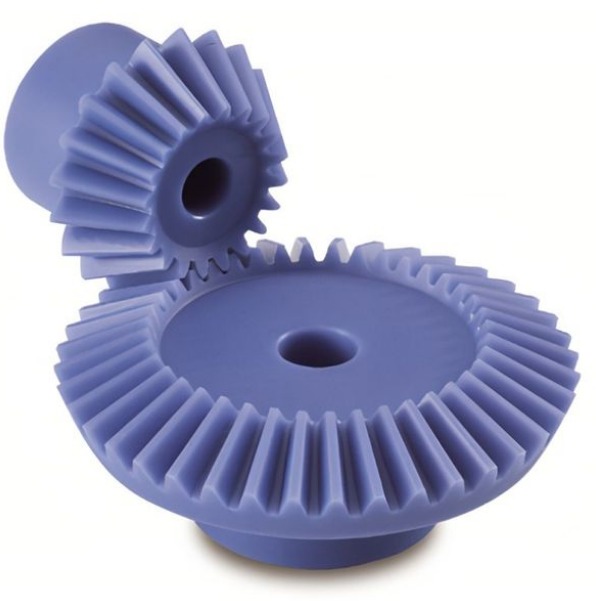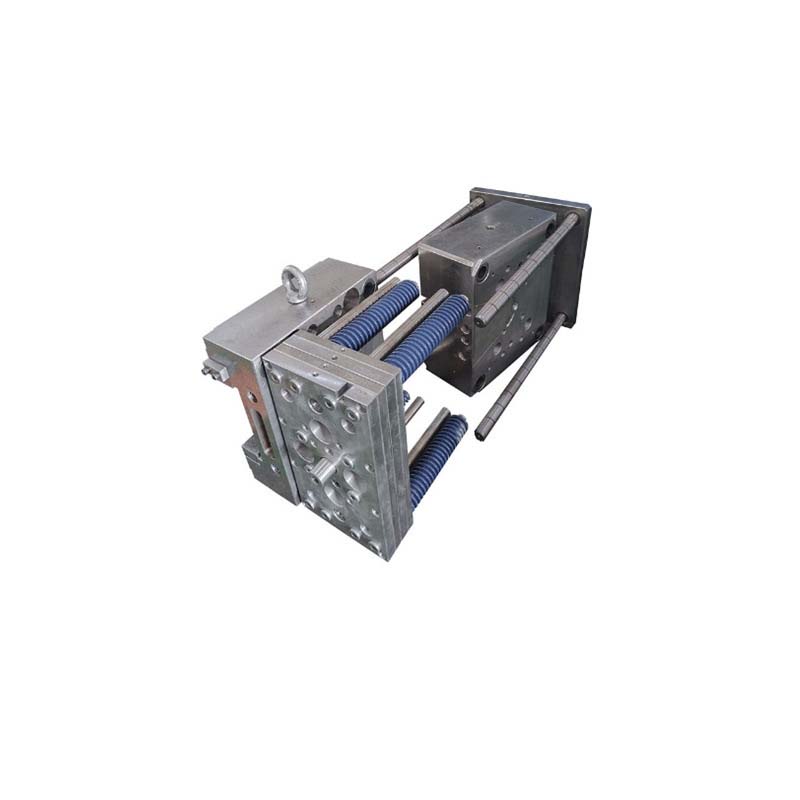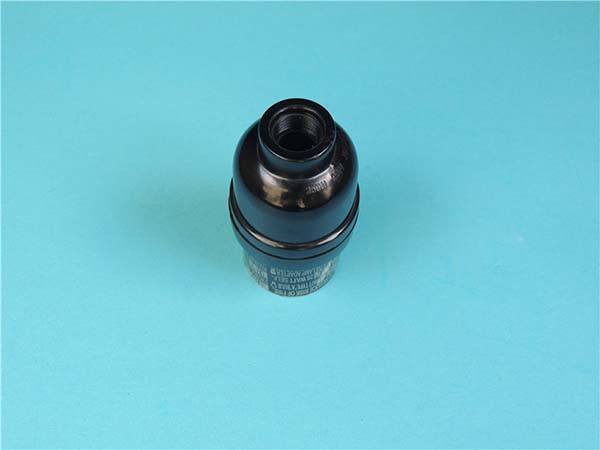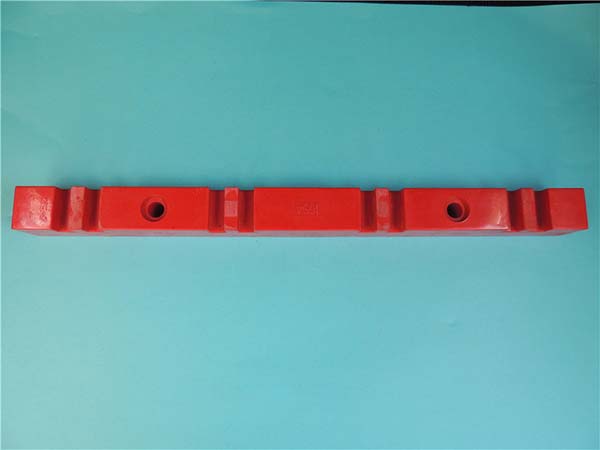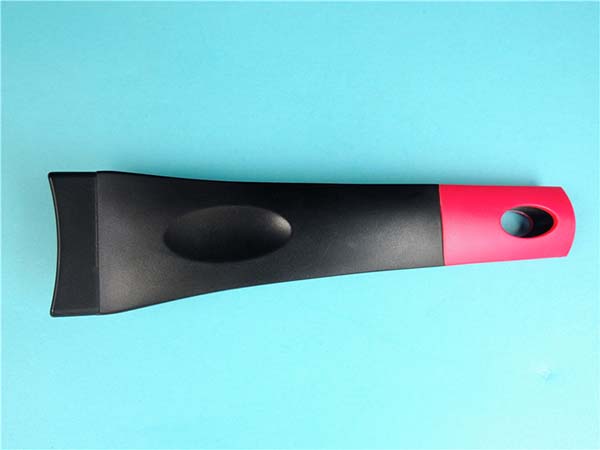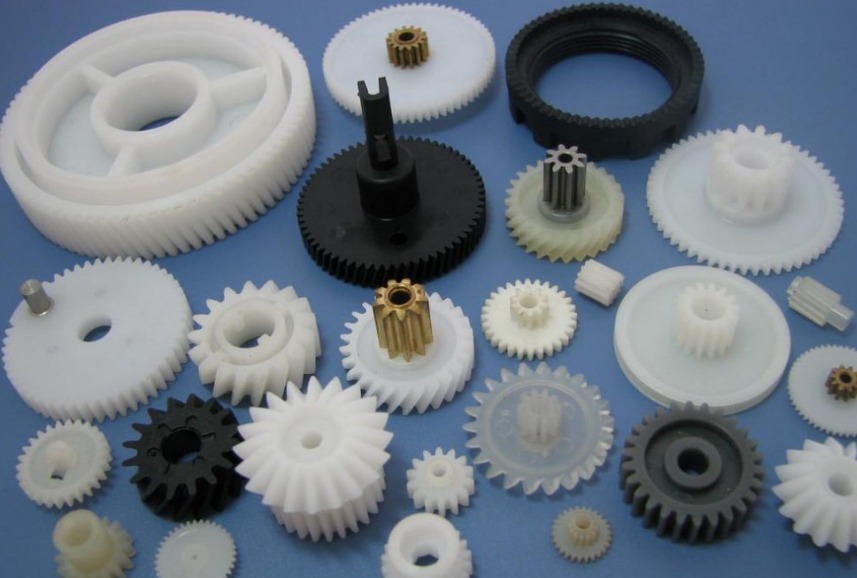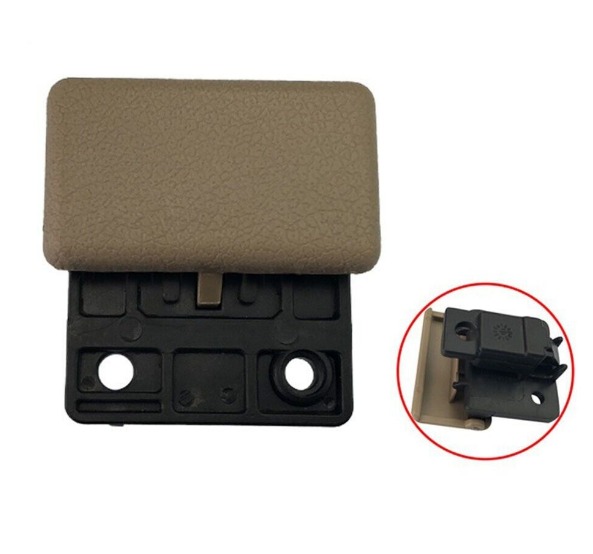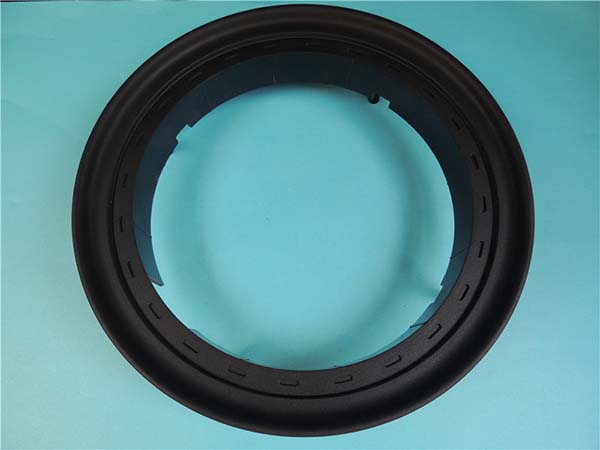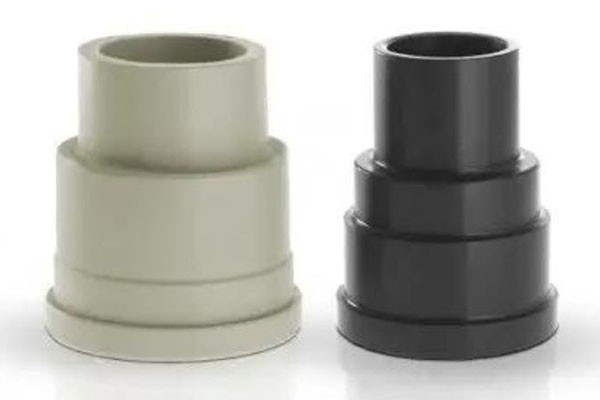Introduction
What are Plastic Miter Gears?
Plastic miter gears are a type of bevel gears with teeth cut at a right angle to their axis, typically 45 degrees, designed to transmit motion and power between two intersecting shafts, usually at a 90 - degree angle. They are made from various types of plastics, which endows them with unique characteristics compared to their metal counterparts.
The structure of plastic miter gears consists of a hub, which attaches to the shaft, and a rim with precisely cut teeth. The teeth are designed to mesh smoothly with the teeth of a mating gear, ensuring efficient power transfer. The working principle is straightforward: as one gear rotates, the teeth engage with the teeth of the other gear, causing it to rotate in the opposite direction. This allows for a change in the direction of rotation, which is crucial in many mechanical systems. For example, in a hand - held power drill, plastic miter gears can change the direction of the motor's rotation to drive the drill bit perpendicular to the motor shaft.
The Significance in Mechanical Applications
Plastic miter gears have found widespread applications in numerous mechanical systems across various industries.
In the automotive industry, they are used in small - scale power transmission systems such as windshield wiper mechanisms and seat adjustment systems. Their lightweight nature helps in reducing the overall weight of the vehicle, which in turn improves fuel efficiency. For instance, replacing metal miter gears with plastic ones in a car's interior components can save a significant amount of weight over time.
In the aerospace industry, where weight reduction is of utmost importance, plastic miter gears are utilized in non - critical power transmission applications. They can operate quietly and require less maintenance, which is beneficial for long - term space missions or aircraft operations. For example, in some small - scale avionics systems, plastic miter gears are used to transfer power between different components.
Industrial equipment also makes use of plastic miter gears. In conveyor systems, they can be used to change the direction of the belt movement, and in small - scale machinery, they can provide the necessary gear reduction or change in rotational direction. Their corrosion - resistant properties make them suitable for use in environments where metal gears might rust or corrode, such as in food processing plants or chemical industries.
Understanding the importance of plastic miter gears in these applications sets the stage for exploring their advantages and the crucial material considerations when choosing them for a specific mechanical task.
Material Considerations for Plastic Miter Gears
Common Plastic Materials Used
When it comes to manufacturing plastic miter gears, several types of plastic materials are commonly employed, each with its own set of unique characteristics.
Nylon (Polyamide, PA): Nylon is a popular choice for plastic miter gears due to its high strength and excellent wear - resistance. It has a relatively high tensile strength, which allows it to withstand significant mechanical stress during operation. For example, Nylon 66 has a tensile strength of around 80 - 90 MPa. Its self - lubricating properties reduce friction between the gear teeth, extending the gear's lifespan. Nylon also has good chemical resistance, being able to resist many common chemicals found in industrial environments. However, nylon has a relatively high moisture absorption rate. This can cause dimensional changes over time, especially in humid environments, which may affect the gear's performance.
Polyoxymethylene (POM): Also known as "acetal" or "polyformaldehyde," POM is highly regarded for its outstanding dimensional stability. It has a low coefficient of thermal expansion, meaning it maintains its shape well even when exposed to temperature changes. POM also offers high stiffness and rigidity, with a flexural modulus of approximately 2.6 - 3.0 GPa. This makes it suitable for applications where precise gear meshing is crucial. Its high fatigue strength allows it to endure repeated cyclic loading without failure. POM has excellent resistance to many organic solvents and is self - lubricating, reducing the need for external lubrication in some cases. But it has a relatively low heat resistance compared to some other engineering plastics, with a continuous use temperature limit of around 80 - 100°C.
Polycarbonate (PC): PC is well - known for its exceptional impact resistance. It can withstand sudden impacts without cracking or breaking, making it suitable for applications where the gears may be subject to shock loads. For instance, it has an impact strength of up to 600 - 900 J/m (Izod notched). PC also has good dimensional stability and can maintain its shape under different environmental conditions. It is transparent, which can be an advantage in applications where visual inspection of the gear operation is required, such as in some optical or display - related equipment. However, PC has a relatively low surface hardness compared to Nylon and POM, which may make it more prone to wear in high - friction applications.
Factors to Consider When Selecting Materials
Load and Stress Requirements
The load and stress that plastic miter gears will be subjected to are crucial factors in material selection. For high - load applications where the gears need to transmit a significant amount of power, materials with high strength are essential. Nylon, with its high tensile strength, is a great choice. For example, in a small - scale industrial conveyor system that requires the miter gears to move heavy loads, nylon gears can handle the stress effectively.
On the other hand, for low - load applications, such as in small - scale hobbyist projects or some consumer electronics with minimal power transmission requirements, materials like POM can be used. POM is not only cost - effective in these cases but also provides sufficient strength for the light loads.
The following table provides a general guideline for material selection based on load requirements:
| Load Level | Recommended Material | Reason |
| High Load | Nylon | High tensile strength to withstand heavy stress |
| Medium Load | Nylon or POM | Nylon for strength, POM for a balance of cost and performance |
| Low Load | POM | Cost - effective and sufficient strength for light loads |
Temperature and Chemical Exposure
The operating temperature and chemical environment can significantly impact the performance of plastic miter gears. High temperatures can cause plastics to soften, lose strength, and change dimensions. For example, POM has a relatively low continuous use temperature limit. If it is used in an environment where the temperature exceeds 100°C for an extended period, it may start to deform and lose its mechanical properties.
Certain chemicals can also corrode or degrade plastics. In a chemical processing plant, if the miter gears are exposed to strong acids or alkalis, materials like nylon or POM may not be suitable. Instead, more chemically resistant plastics such as polyetheretherketone (PEEK) can be considered. PEEK has excellent chemical resistance and can operate at high temperatures (up to around 260°C continuously).
For applications in normal indoor environments with moderate temperatures (around 20 - 30°C) and no harsh chemicals, common plastics like Nylon, POM, or PC can be used. However, in outdoor applications where the gears may be exposed to UV radiation and varying temperatures, materials with UV - resistance additives need to be selected.
Precision and Dimensional Stability
In applications where high precision and dimensional stability are required, such as in precision instruments or aerospace components, materials with low thermal expansion coefficients and high resistance to environmental factors are preferred. POM, with its low coefficient of thermal expansion and good dimensional stability, is an ideal choice. In a high - precision optical tracking device, POM miter gears can ensure accurate movement and positioning due to their ability to maintain their shape and size over time.
PC also offers good dimensional stability, but its relatively lower surface hardness may be a drawback in some high - precision applications where wear resistance is crucial. Nylon, while strong, may experience dimensional changes due to moisture absorption, which can be a concern in applications that demand strict dimensional tolerances.
Yigu Technology's Perspective
Our Commitment to Quality
At Yigu Technology, as a leading non - standard plastic metal custom products Supplier, we place utmost importance on the quality of our plastic miter gears. We understand that the performance and reliability of our products are crucial for our customers' applications.
From the sourcing of raw materials, we work closely with trusted suppliers to ensure that only high - quality plastics are used. Rigorous quality checks are carried out on each batch of incoming materials. For example, we test the material's mechanical properties, such as tensile strength and impact resistance, to ensure they meet our strict standards.
During the production process, we employ advanced manufacturing techniques and state - of - the - art equipment. Our highly skilled technicians follow strict quality control procedures at every stage, from the initial mold design to the final product inspection. This attention to detail ensures that each plastic miter gear we produce has consistent quality and reliable performance.
Innovation in Plastic Miter Gears
We are constantly innovating in the development and production of plastic miter gears. In terms of materials, our R & D team is actively exploring new plastic formulations. For instance, we are developing a new type of plastic blend that combines the high strength of nylon with the excellent dimensional stability of POM. This new material is expected to have improved wear - resistance and heat resistance, making it suitable for more demanding applications.
In the manufacturing process, we are optimizing our injection - molding techniques to reduce production costs without sacrificing quality. By using advanced simulation software, we can predict and optimize the filling and cooling processes in the mold, reducing the occurrence of defects such as warping and shrinkage. This not only improves the product quality but also shortens the production cycle, allowing us to provide more cost - effective solutions to our customers.
In conclusion, at Yigu Technology, we are committed to providing high - quality, innovative plastic miter gears that meet the diverse needs of our customers across various industries.
FAQ
Q1: What is the main advantage of plastic miter gears over metal ones?
A1: The main advantages include their lightweight nature, which can reduce the overall weight of mechanical systems, corrosion resistance, making them suitable for harsh environments, noise and vibration dampening for quieter operation, and cost - effectiveness in terms of raw materials, processing, and maintenance.
Q2: How do I choose the right plastic material for my miter gear application?
A2: Consider factors such as the load and stress requirements of your application. For high - load applications, materials like nylon with high strength are suitable. For medium - load applications, nylon or POM can be considered, and for low - load applications, POM is a cost - effective choice. Also, take into account the temperature and chemical exposure of the operating environment, as well as the need for precision and dimensional stability.
Q3: Can Yigu Technology customize plastic miter gears according to specific requirements?
A3: Yes, Yigu Technology specializes in non - standard plastic metal custom products. We can customize plastic miter gears in terms of material selection, design, and production to meet your specific application requirements, whether it's for unique load conditions, environmental factors, or dimensional specifications.
